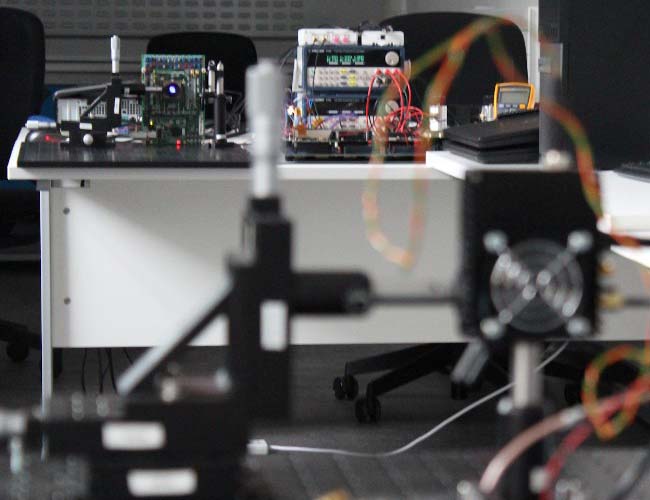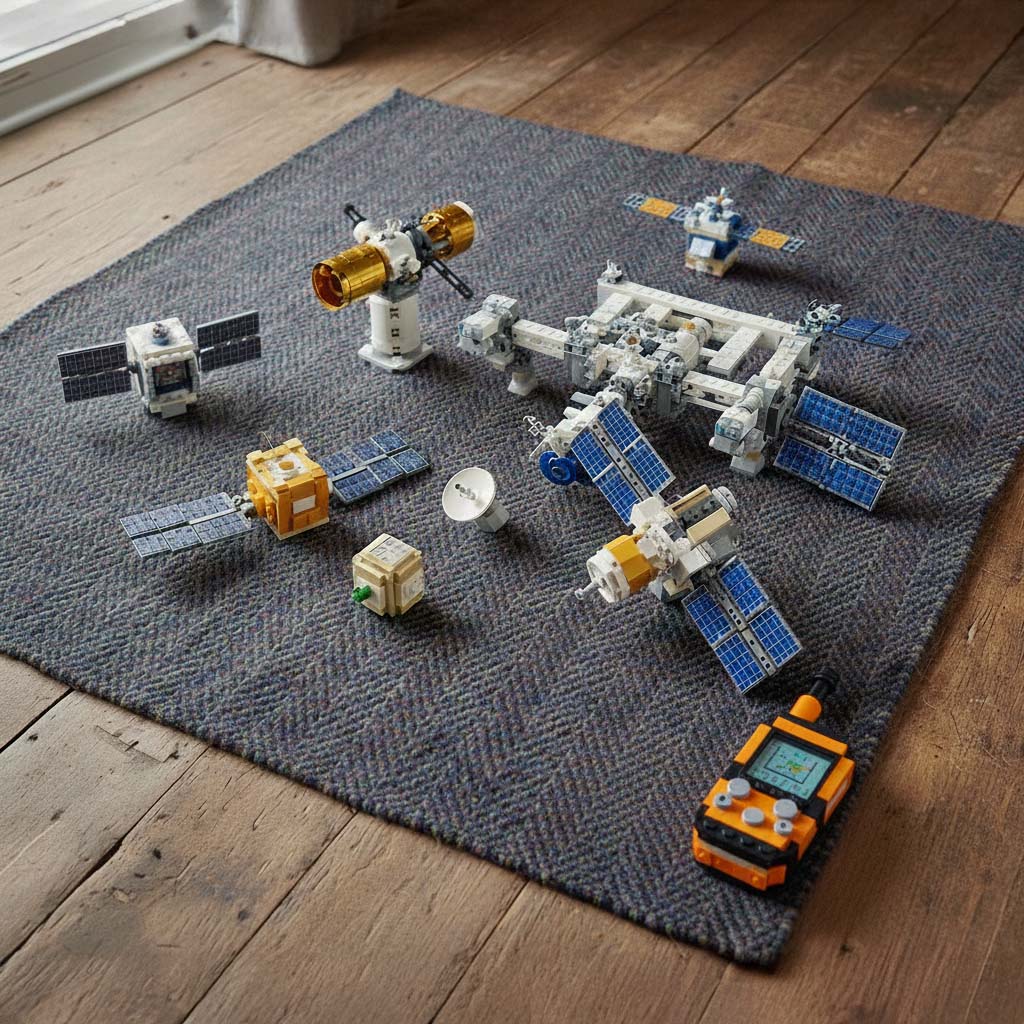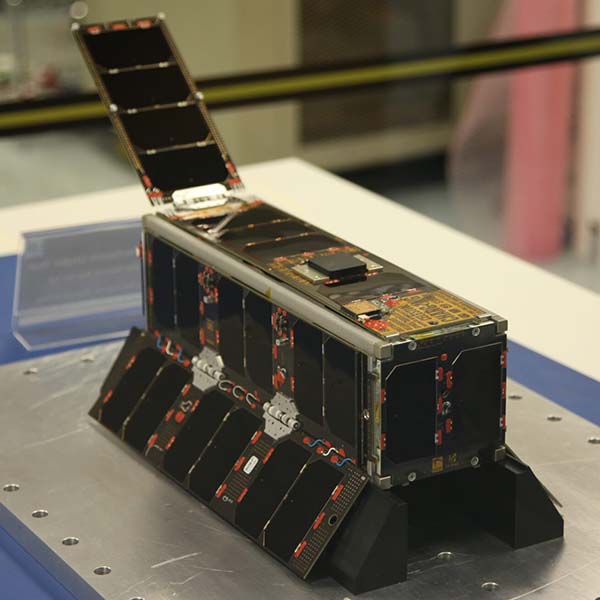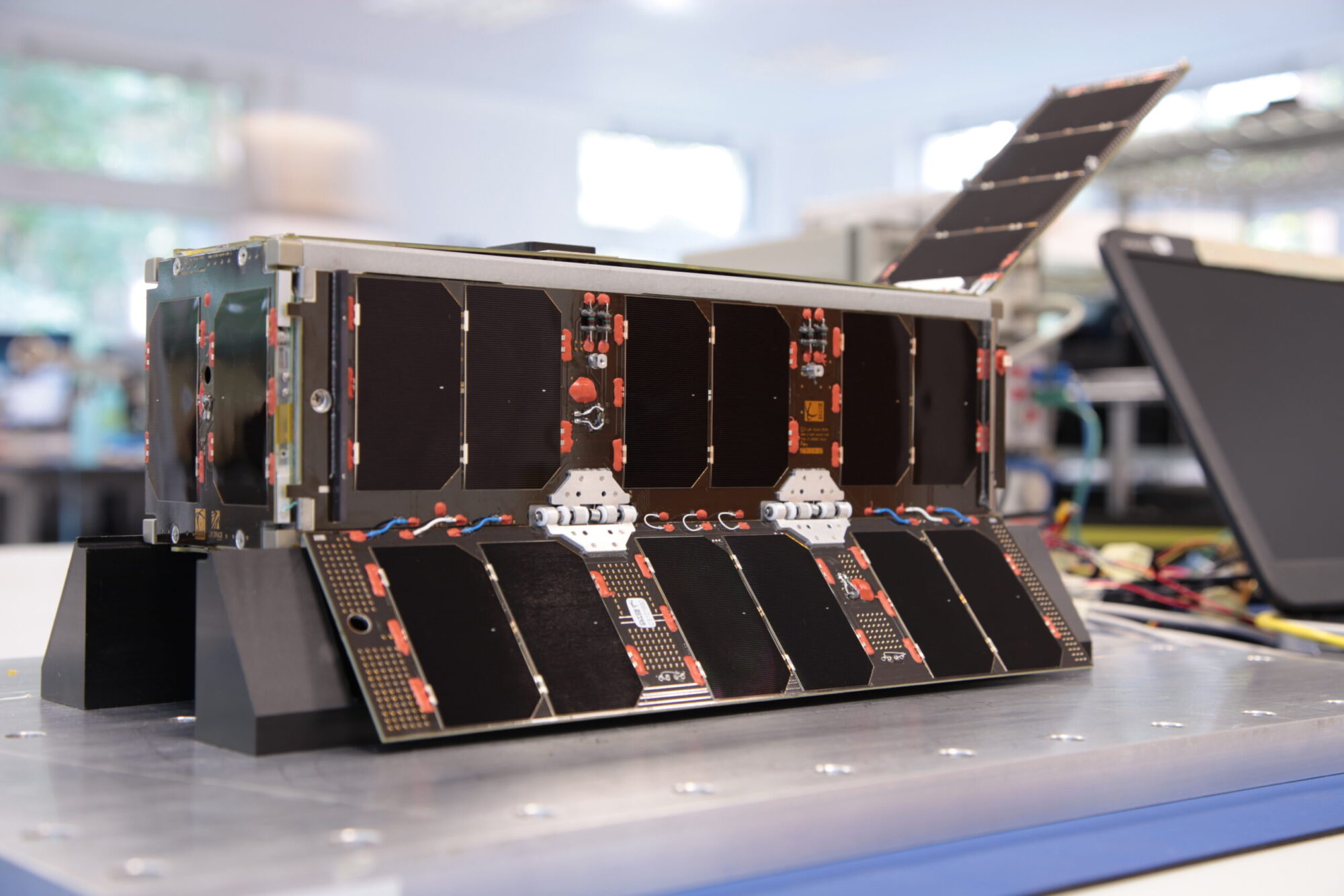
Space is at a crossroads. Space technology is in the innovation window between technology lifecycle “S” curves, an inflection point, moving from a few nation states being able to access space, to mass-participation, and mass data access.
We are developing new space and adjacent sector technologies in response to global challenges and anticipated demands, accelerating the democratisation of the use of space, and the data and services it provides.
Developing new mission systems and concepts, engaging with users and customers. From systems engineering, to astrodynamics, and technology development lifecycles, we work from modelling new instrument and mission concepts, to novel orbits and constellations.
Learning Made Useful – Case Studies

Decentralised Space System
Just as an inspired leap was required to transition from a single computer to the interconnected system of knowledge that is the internet, the scale and potential of space services will only be delivered if fundamentally new ways of operating and exploiting space systems are established. We are laying the foundations to fundamentally re-engineer space systems, prioritising sustainability, connectivity, and hence resilience to accelerate the transition of satellites from infrequently connected systems to IoT sensor nodes: a pervasive and ubiquitous network of distributed, taskable intelligent agents.
We are developing methods, algorithms, and systems to decentralise space operations. From co-operative navigation to development of distributed ledger technology tailored to applications on-board spacecraft.
Alternative Positioning, Navigation, & Timing (Alt-PNT)
Global reliance on GPS-like systems makes critical infrastructure vulnerable to disruption. This is becoming increasingly common and poses significant risks to vital sectors like communications, energy, and transport, including safety of air travel.
We’re exploring methods of autonomous, decentralised, and cooperative non-GPS PNT. By developing methods to decentralise time synchronisation, we’re developing the foundations for an autonomous, distributed, fault-tolerant timing signal in-space, providing a non-GPS time and location service, as well as the redundancy to provide an audit of Global Navigation Satellite System, GNSS, signals.


Systems Development
Our research and expertise has supported historic firsts
- First Scottish spacecraft, and first UK commercial CubeSat; UKube-1, 2014, shown in image.
- First spaceflight collaboration between the Mexico Space Agency and NASA; AzTechSat-1, 2019.
We’ve delivered capacity building, and aided development of satellite technology and applications around the world.
“the University of Strathclyde’s research on nano-satellite technology and space mission analysis, conducted by Prof Malcolm Macdonald and his team, has been instrumental in informing NASA’s approach to small spacecraft.”
- from the Associate Chief Technologist at NASA Jet Propulsion Laboratory

